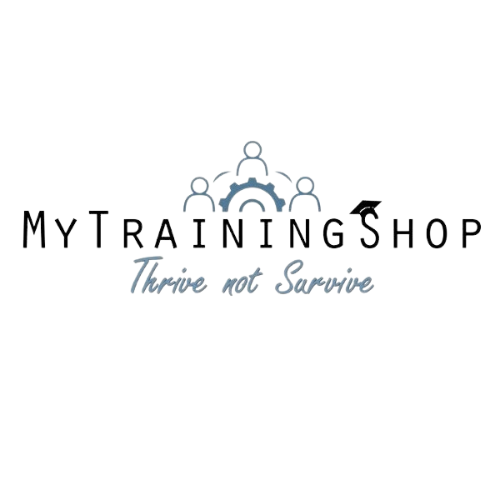
Personality Profiling and Abilities Assessments
Difference Between Personality Profiling and Abilities Assessments
Team Profiling for Success
If you run your own business or have a responsibility for recruitment, you are always going to want to hire the best people you can. A successful team can inspire each other to greatness, help foster a collaborative atmosphere and complement each other’s skillset to give any business the best possible chance of success.

In years gone by, the recruitment process for most businesses revolved around reviewing a CV, followed by an interview…. and that was probably it. If not, hiring might have simply relied on some well-placed nepotism. Thankfully things have changed for the better. When you realise that poor recruitment can cost a business the equivalent of at least one year’s pay, it’s not a cost most businesses can afford.
In this modern, interconnected world we live in, there is now a wealth of academic and scientific research to help form our decisions when it comes to hiring. No longer is the CV the only resource you can use to get to know any potential hires.to help them make informed decisions, but what’s the difference between them? Let’s take a look.

Cognitive Ability Assessments

When it comes to ability assessments, sometimes referred to as ‘skill tests’, they are designed to help you determine a candidates current level of skill. This can relate to their technical know-how or their abilities at the time of the test. These kind of assessments are more discrete, although they aren’t based on any sort of psychological or academical theories. Through a simple ‘ask-and-answer’ format, they basically give you an instant assessment captured at one particular moment in time. They will simply tell you whether someone has a particular skill, or not. It’s quite a binary process. Whilst it might give you some information about their abilities, it offers a narrow spectrum about them as people. It might tell you someone can use a particular piece of software for example, but it doesn’t necessarily inform you on how competent they are at it.

DiSC Personality Profiling

The other option in the recruitment conundrum, and one that is used by many organisations, is to employ personality profiling when screening candidates. There are numerous types of these tests and many ways to onboard employees DiSC is probably the best and most well-known of them, but it’s not the only one you can try. Tools like the Myers-Briggs Test Indicator, HEXACO, Eysenck Personality Inventory and (deep breath) the Minnesota Multi-phasic Personality Inventory all work to help you understand the psychological make-up of candidates through personal assessments.

Skills Testing and Psychometric Tests
 The biggest difference between the two is something that isn’t immediately obvious. Whilst ability assessments are simple questionnaires designed to garner facts, personality profiling, often called psychometric testing, has been built on decades of psychological and behavioural research. They aren’t about measuring intelligence or ability, but look at a candidate’s behaviour to ascertain how they might cope with different scenarios. In the time since they were initially created, there has been so much more research, experimentation and testing done that the science of profiling has evolved enormously and continues to do so.
The biggest difference between the two is something that isn’t immediately obvious. Whilst ability assessments are simple questionnaires designed to garner facts, personality profiling, often called psychometric testing, has been built on decades of psychological and behavioural research. They aren’t about measuring intelligence or ability, but look at a candidate’s behaviour to ascertain how they might cope with different scenarios. In the time since they were initially created, there has been so much more research, experimentation and testing done that the science of profiling has evolved enormously and continues to do so.

Self Assessment Tools for Teams

As mentioned earlier, an abilities or skills test really only measures a person at the time they take the test. Whilst you could argue they tangentially incorporate past experiences, they don’t and can’t give you an insight into what they are going to be like in the future. You need personality profiling for that
Another important differentiator between the two is the ability to easily compare people. Whilst one person may have a skill that other’s don’t, with personality profiling you can delve deeper into them, looking across a range of factors quickly and easily. You can see how they might collectively cope with change, how they may respond to rules and procedures or how problems are tackled. It breaks down how one person may manage their working environment better than another. In the workplace, that is going to be more valuable than whether they can turn on a computer.
Behaviour in the Workplace
It’s important to say that personality profiling isn’t just used for recruitment. It can be utilised for appraising existing staff, team working and even coaching or developing existing staff, including the senior leadership teams.
In simplistic terms, you can think of the difference between the two as ability assessments telling you what they can do now, whereas behavioural profiling tells you what they can be in the future. DiSC, in particular, offers something crucially important to employers and employees alike. Rather than it separating people from data, it uses data to help someone learn about themselves to improve how they work together.
When you take that on a larger scale you can find ways of making teams work better together and help managers make the right choices, based on evidence that is thorough and validated.
A recent McKinsey report suggests as part of the subject physiological safety "Leaders can build psychological safety by creating the right climate, mindsets, and behaviours within their teams"
Trainers, facilitators, coaches, program managers? Increase individual and team effectiveness through finding out everyone's unique strengths by introducing a DiSC culture to your workplace today.
Learn more about how Everything DiSC® can help bring about a positive culture across teams.
Emotional Resilience
Want to know about the power of Everything DiSC for yourself ? start your questionnaire now to receive your personalised report. Discover your behavioural tendency's. Disclaimer Everything DiSC from Wiley is NOT a skills assessment, nether is it designed to label people.
More information and organisational UK success stories (FREE downloads)
© Sian










